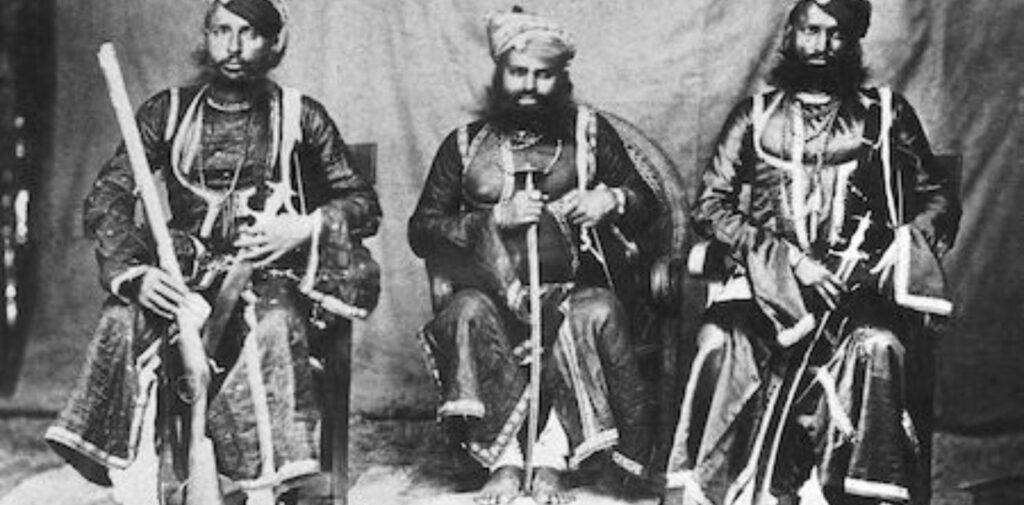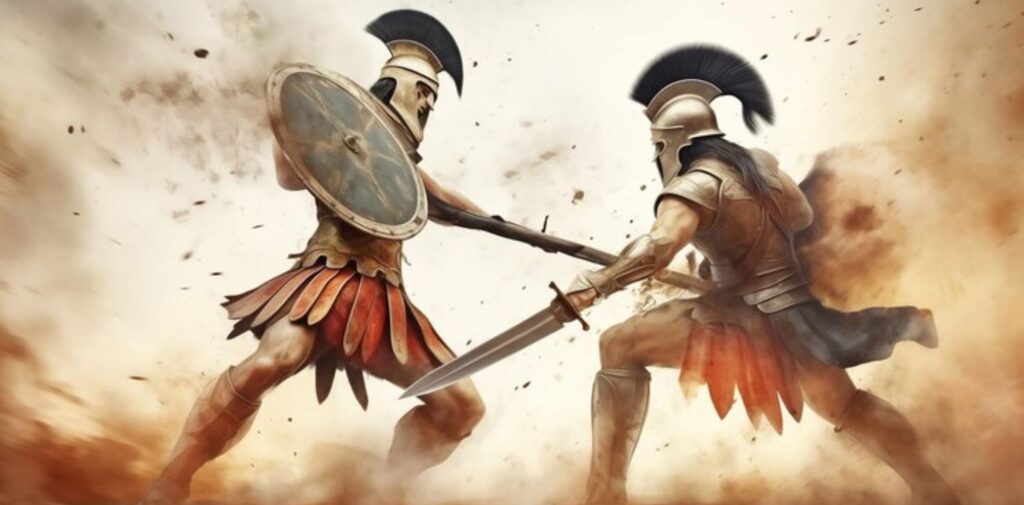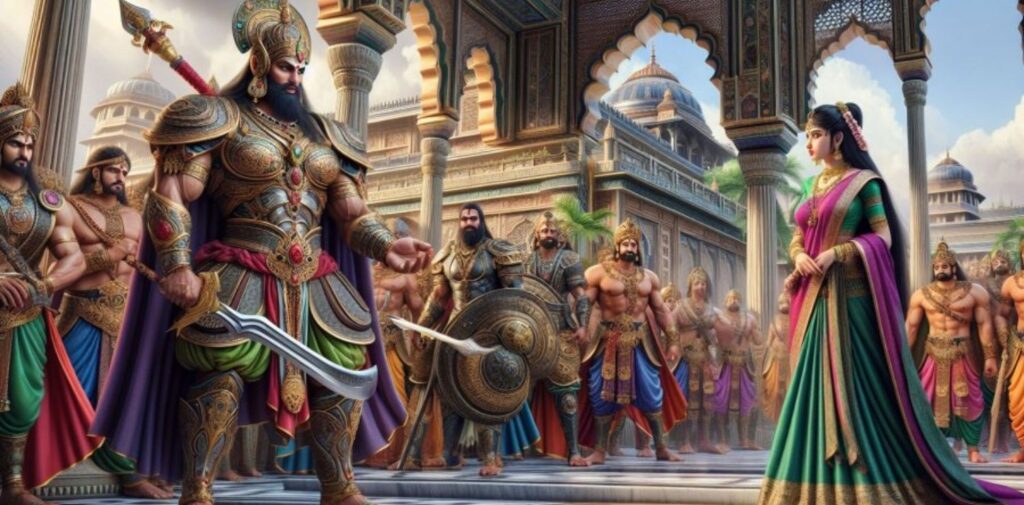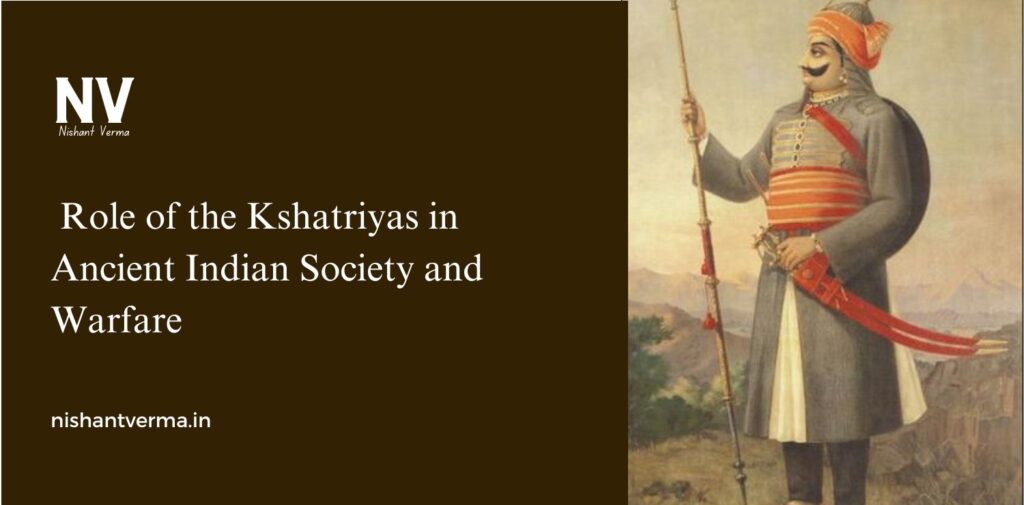In ancient India, society was divided into four major groups, or varnas, each with its own role and duties. One of the most important groups in this system was the Kshatriyas. They played a significant role in both the everyday life of ancient India and in its history, especially when it came to warfare. In this article, we will explore the role of the Kshatriyas, focusing on how they contributed to society, their duties, and their involvement in battles and wars.
Who Were the Kshatriyas?
The Kshatriyas were the warrior class of ancient Indian society. They were the second group in the varna system, which was made up of Brahmins (priests and teachers), Kshatriyas (warriors and rulers), Vaishyas (merchants and farmers), and Shudras (laborers). The Kshatriyas were known for their strength, bravery, and leadership. Their main responsibility was to protect and defend the land, as well as maintain law and order.

What Were Their Responsibilities?
The Kshatriyas had many important responsibilities. They were leaders, soldiers, and protectors of their people. Let’s look at their main roles:
- Protecting the Kingdom: The primary duty of the Kshatriyas was to defend their kingdoms and territories. They were trained from a young age to be strong warriors. This training included learning to ride horses, wield weapons like swords and bows, and understanding tactics for battle. When their kingdoms were under attack, it was the Kshatriyas who led the armies into battle, ensuring that their people were safe from invaders.
- Ruling the Kingdom: Many Kshatriyas were also kings, queens, and princes. They ruled over territories and made important decisions about the well-being of their people. As rulers, they were responsible for maintaining peace and order, ensuring that everyone followed the law, and managing the resources of the kingdom.
- Upholding Justice: Kshatriyas were expected to be fair and just in their rule. They had to make sure that the people were treated fairly and that wrongdoers were punished. The Kshatriyas had to decide what was right and wrong, and ensure that peace was maintained in their kingdoms.
- Leading in War: During times of war, the Kshatriyas were the leaders of the army. They would plan strategies, organize the soldiers, and lead them into battle. It was their duty to protect the kingdom from enemies and ensure victory in battle. Kshatriyas were also responsible for keeping the morale of their soldiers high, ensuring they fought with courage and strength.

Kshatriyas and Warfare: A Closer Look
Warfare was a big part of the Kshatriyas’ lives. The Kshatriyas not only fought in wars but also led their people to success in battle. Let’s see how Kshatriyas played an important role in warfare:
- Warrior Training: Kshatriyas were trained in various forms of martial arts and combat techniques. They practiced with weapons such as swords, spears, and bows, and also learned to ride horses and elephants. This training made them skilled in battle, allowing them to lead their armies with great confidence. They also studied battle strategies and tactics, which helped them plan successful campaigns.
- Famous Kshatriya Warriors: There were many famous Kshatriya warriors in Indian history who became legends. Some of these warriors, like Arjuna from the epic Mahabharata, are still remembered today for their bravery and skill in battle. Arjuna, for example, was a master archer who played a key role in the victory of the Pandavas in the great war of Kurukshetra. Similarly, King Chandragupta Maurya, a Kshatriya, founded the Maurya Empire and defeated powerful enemies to expand his kingdom.
- The Role of Kshatriyas in the Mahabharata and Ramayana: Two of the most famous epics in Indian history—the Mahabharata and the Ramayana—highlight the importance of Kshatriyas in warfare. In the Mahabharata, Kshatriyas like Arjuna, Bhima, and Yudhishthira fight in the great battle of Kurukshetra. They follow the principles of honor and bravery, even in the face of great danger. In the Ramayana, the Kshatriya prince Rama leads an army to rescue his wife, Sita, from the demon king Ravana. The epic teaches important values like duty, loyalty, and courage—qualities that were important to Kshatriyas.
- Battle Tactics and Strategies: Kshatriyas were not only brave fighters, but they were also skilled in the art of war. They learned about battlefield tactics, how to use terrain to their advantage, and how to organize their armies in formations. They also understood the importance of alliances, diplomacy, and even psychological warfare. In times of war, Kshatriyas would plan carefully to ensure that they had the best chance of victory.
Kshatriyas and Society
Apart from being warriors, Kshatriyas played an important role in society. They were responsible for making sure that the people in their kingdom lived in peace and prosperity. They helped maintain the social order and were expected to be role models for others. Let’s see some of the other important ways in which Kshatriyas contributed to society.
- Protecting Religion and Culture: The Kshatriyas were also protectors of the religion and culture of their people. They supported priests, temples, and religious activities. They made sure that the people could follow their religious practices without fear of interference. Kshatriyas understood that a kingdom was not just about land and power, but also about preserving the traditions and values of the people.
- Helping in Times of Crisis: In times of natural disasters or foreign invasions, the Kshatriyas were the first to step forward. They would lead efforts to rebuild the kingdom, help the people, and protect their land from further harm. Their leadership and courage were crucial in maintaining the well-being of the kingdom during difficult times.
- Promoting Justice and Fairness: Kshatriyas were expected to be just rulers. They would settle disputes among their people, protect the rights of the weak, and make sure that everyone followed the law. A good Kshatriya king was one who not only led his army in battle but also ensured that his people lived happy and peaceful lives.

Kshatriyas in Modern History
Even though the Kshatriya class doesn’t exist in the same way today, the role they played in Indian history is still remembered. Their contributions to society, their bravery in war, and their leadership are celebrated in stories, books, and epics. Today, the descendants of Kshatriyas continue to play important roles in various fields such as politics, business, and social work, keeping alive the spirit of their ancestors.
Conclusion
The Kshatriyas were much more than just warriors. They were rulers, protectors, and leaders who shaped the history of ancient India. Their bravery in battle, commitment to justice, and devotion to their people made them an important part of Indian society. The legacy of the Kshatriyas still lives on in the stories, traditions, and values that continue to inspire us today. Understanding their role helps us appreciate the rich history and culture of ancient India, reminding us of the importance of duty, honor, and courage in our own lives.




